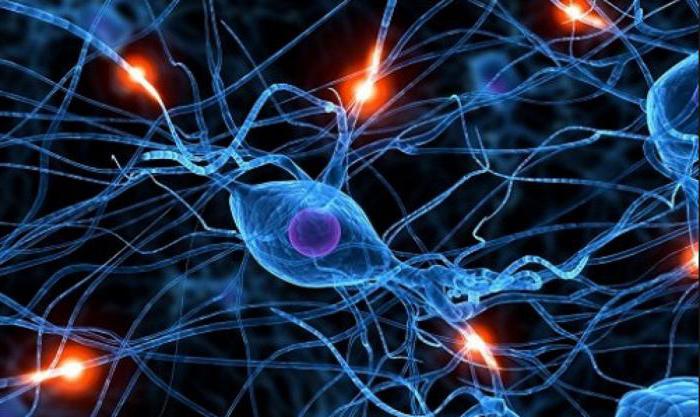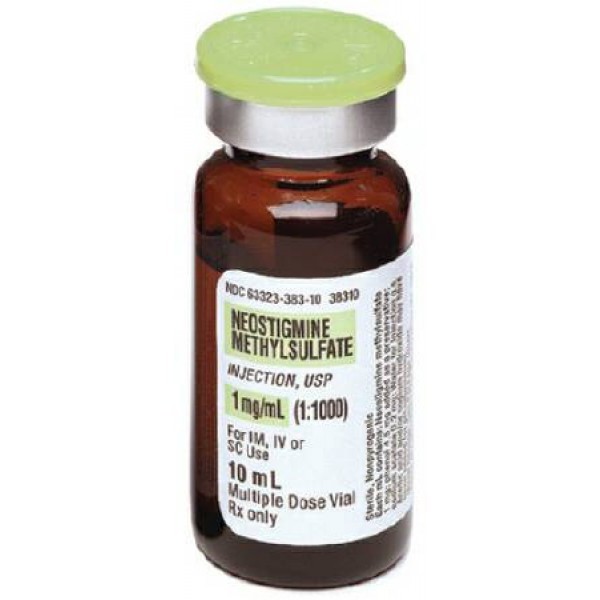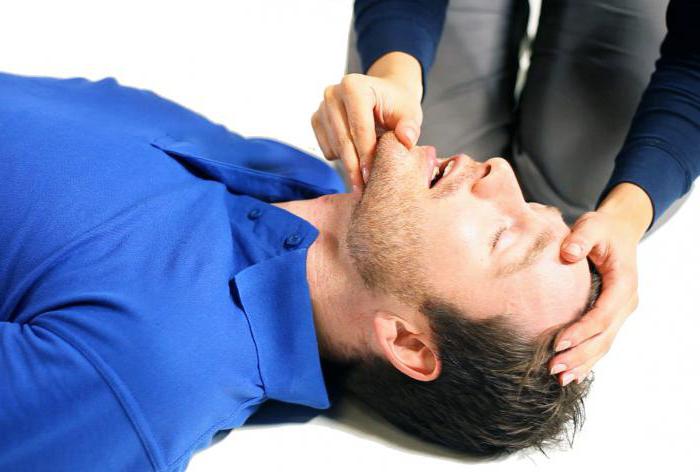The transmission of impulses to neurons is ensured thanks to special substances - mediators. One of the neurotransmitters is acetylcholine. These substances, being in the synapses, exert an effect on the cell membranes, causing their inhibition or excitation and causing various effects. Excess neurotransmitters are cleaved by special enzymes.
Anticholinesterase drugs: properties and purpose
Anticholinesterase drugs include those that inhibit the cholinesterase enzyme. This enzyme cleaves by hydrolysis the neurotransmitter acetylcholine, which provides the transmission of impulses in the synapses of the parasympathetic nerves sensitive to it, the ganglia and in all somatic fibers. Anticholinesterase agents have been developed for the situational enhancement of the action of acetylcholine on neurons and stimulation of certain parts of the nervous system. The use of these drugs has an effect on the whole organism.

The action of anticholinesterase drugs is similar to the effect of stimulation of cholinergic nerves. These drugs interact with the same site of surface activity of the receptor as acetylcholine, which creates the potential for action of the nerve ending. Cholinomimetics and anticholinesterase drugs are, in fact, one and the same pharmacological group of substances. There are several types of these drugs that differ in chemical structure and reversibility. Cholinesterase blockers are divided into reversible and irreversible.
Reversible agents
Anticholinesterase drugs - drugs of reversible action, are chemical esters of carbamic acid esters and various amino alcohols. The component of the reaction blocking cholinesterase is the acidic termination, which establishes a much more stable bond with the enzyme molecule than that which forms upon interaction with acetylcholine itself. Complete destruction of this compound occurs by hydrolysis within 3-4 hours.
Reversible anticholinesterase agents include Galantamine, Physostigmine, Proserin (or Neostigmine), Pyridostigmine, Oxazil, Rivastigmine, Edrofoniy.
Organophosphorus - irreversible substances
Irreversible drugs of this group are organophosphorus compounds. These substances block acetylcholinesterase for a long time. Phosphorus, which is part of their molecules, forms a stable compound with the enzyme, which can exist in the body for several days and even weeks. The restoration of the required amount of acetylcholinesterase occurs through the formation of new molecules. This group of compounds includes Fosfakol, Armin, Chlorofos, Karbofos, Dichlorvos, and the poisonous substances used during the military operations are sarin and soman.
Organophosphorus preparations are highly toxic. They are often used in everyday life as insecticides; poisoning is possible with their improper use and non-observance of safety measures.
The effects of anticholinesterase drugs
With a certain similarity of effects that anticholinesterase agents produce on the body, the indications for each of them will be special. Consider the practical effect when introduced into the body can be an example of "Proserine".
"Proserine" is available in ampoules in the form of a 0.05% solution and is administered subcutaneously or intravenously. When it enters the bloodstream, it facilitates the passage of impulses in neuromuscular transmissions and the ganglia of the autonomic nervous system. In the patient’s condition, this is manifested as follows:
- due to contraction of the circular muscle of the iris, the pupil narrows;
- there is a spasm of accommodation, the lens takes on a more convex shape due to the relaxation of the zinc ligament, the focus of vision is set to a short distance, the ability to distinguish between distant objects is sharply reduced;
- heart rate decreases;
- the tone of the smooth muscles of the internal organs - the respiratory tract, stomach and intestines, uterus, bladder increases;
- skeletal muscle contractions increase due to improved impulse transmission at synapses;
- increased secretion of exocrine glands - sweat, salivary, bronchial, gastric.
Application
The listed effects determine the use of this group of drugs in medicine in various cases. Indications for the use of anticholinesterase drugs are not limited to specific diseases, since they have an effect on the central and peripheral nervous system, which causes a general effect on the whole body. Most often, they are prescribed for violations of the innervation and tone of the skeletal or smooth muscles.
Consider the possibility of treatment with anticholinesterase drugs can be the example of Proserinum. This reversible drug is used for myasthenia gravis - an autoimmune disease that manifests itself in skeletal muscle weakness. This disease is manifested first by a decrease in the tone of facial muscles, then by a weakening of the muscles of the neck, upper and lower extremities; in severe cases, respiratory failure due to insufficient work of the diaphragm is observed. Proserinum acts symptomatically on the body, restoring the transmission of impulses in neuromuscular transmissions, thereby increasing muscle tone, and facilitating motor activity.

Also, this drug is prescribed in the postoperative period with atony of the gastrointestinal tract or bladder. In ophthalmology, it is occasionally prescribed for glaucoma to reduce intraocular pressure. As an antagonist, it is used in case of an overdose of muscle relaxants and antidepolarizing drugs. Occasionally, Prozerin is used to stimulate muscle contractions in case of weak labor.
Alzheimer's disease
Reversible drugs have found application in diseases of the central nervous system that are difficult to treat. In Alzheimer's disease, “Galantamine” is prescribed - an alkaloid obtained from snowdrop tubers of the Galantus genus (“Rivastigmine”, aka “Exelon”), but “Donepezil” has become the most therapeutically effective, which selectively blocks acetylcholinesterase in the synapses of the brain and practically does not affect it on the periphery of the nervous system.
Contraindications
Based on the effects of reversible anticholinesterase drugs, contraindications to their use are epilepsy, bronchial asthma, angina pectoris, Parkinson's disease and all kinds of disorders of the cardiac conduction system.
Symptoms of overdose and AChE poisoning
Poisoning with anticholinesterase agents gives symptoms that are directly related to excessive stimulation of acetylcholine-sensitive receptors. There is a narrowing of the pupils, a slowing of the heart rate (bradycardia), bronchospasm and - as a result - symptoms of suffocation, increased gastrointestinal motility up to vomiting and diarrhea, frequent urination. Blood pressure gradually decreases as a result of the inhibitory effect of the vagal nerve. Chaotic contractions and twitches of skeletal muscles and tongue occur due to impaired conduction in neuromuscular transmissions.
FOS poisoning
The ingestion of organophosphorus compounds causes a clinical picture similar to poisoning with reversible anticholinesterase agents. Symptoms may appear brighter due to the higher toxicity of the drugs. To the symptoms of poisoning at the somatic level, effects are added at the level of the central nervous system - confusion, disorientation, respiratory depression.
Organophosphorus compounds cause severe miosis, visual impairment, suffocation, sweating, severe vomiting, psychomotor agitation - the patient begins to panic, he becomes uncontrollable. Because of smooth muscle spasms, abdominal pain is sharp. When the condition worsens, convulsions occur, blood pressure drops, and coma develops. Death can occur due to paralysis of the respiratory center.
Similar symptoms are observed in case of poisoning with fly agaric. This is due to the content of muscarin in them - a poison with a cholinomimetic effect.
Poisoning Actions
Medical assistance for poisoning with anticholinesterase drugs can only be provided by a specialist. In these cases, the solution of Atropine is administered subcutaneously, it is possible to prescribe Metacin or other anticholinergics. It is necessary to maintain breathing at the proper level. Tracheotomy, mechanical ventilation, and oxygenation may be used.
In household poisoning, FOS determines the source of poison in the body. If the substance has penetrated the skin, it is washed off with a 3-5% soda solution or soap and water. In the case when the drug was taken orally, gastric lavage, repeated enemas are carried out, give adsorbents or laxatives. If the organophosphorus compound has already managed to get into the blood to a greater extent, forced diuresis is prescribed with the help of diuretics. In some cases, resort to methods of blood filtration using hemodialysis and hemosorption.

In addition, in case of FOS poisoning , cholinesterase reagents are prescribed , which, when introduced in the first hours after intoxication, can restore blocked enzymes. It can be "Isonitrosine", "Trimedoxime", "Dipiroksim." If blood pressure is elevated, hypotensive drugs are prescribed symptomatically. Preference should be given to those that do not affect the central nervous system. With weakening of independent breathing, artificial ventilation of the lungs and oxygen supply are indicated.